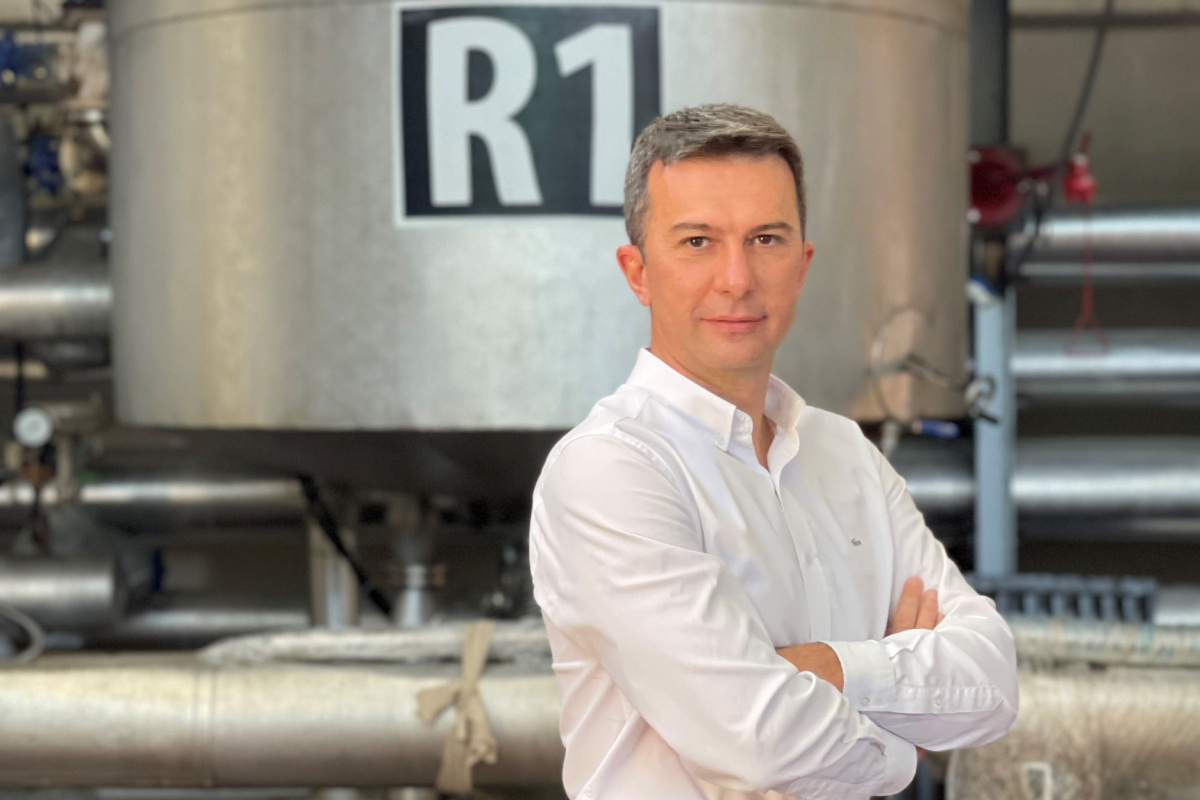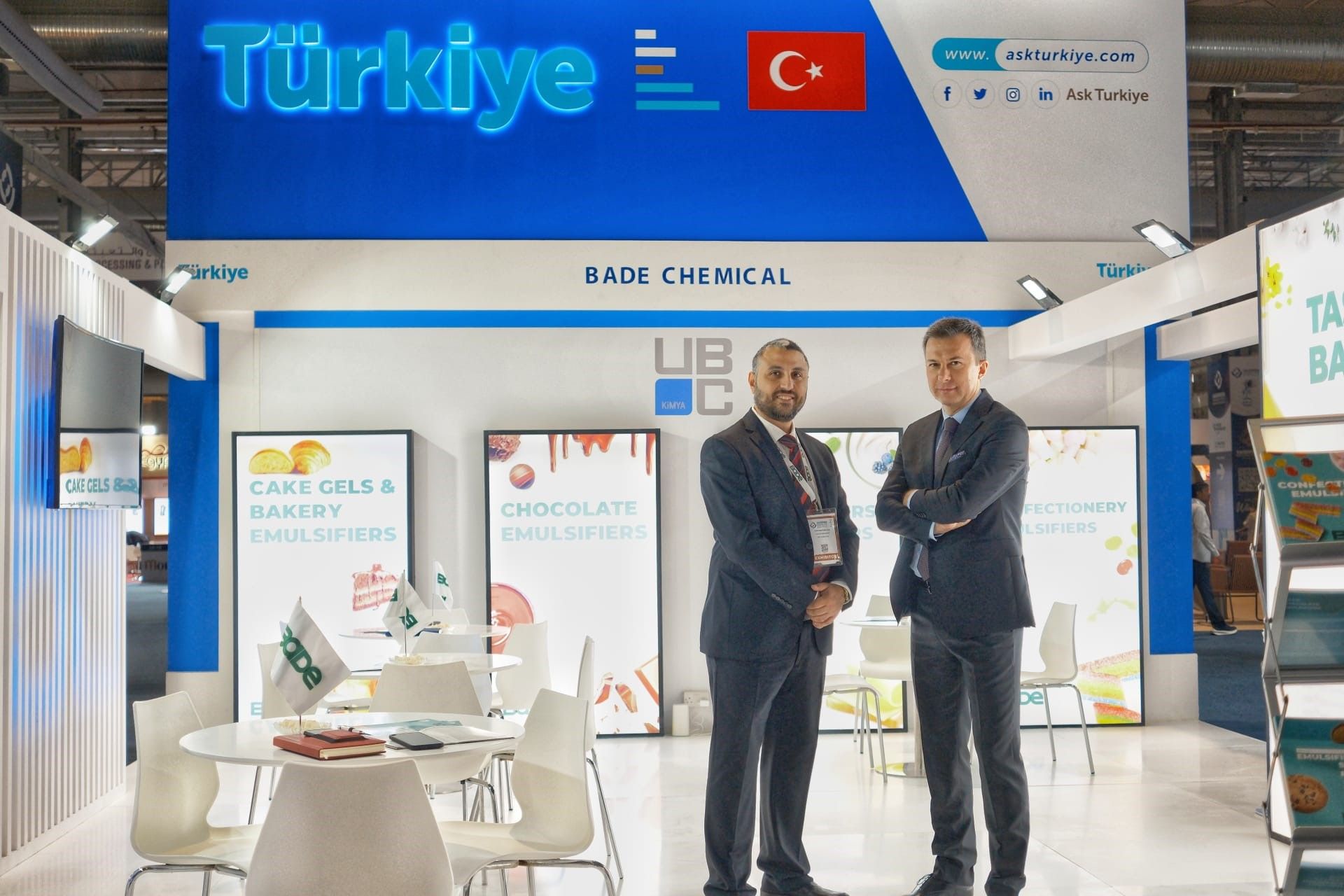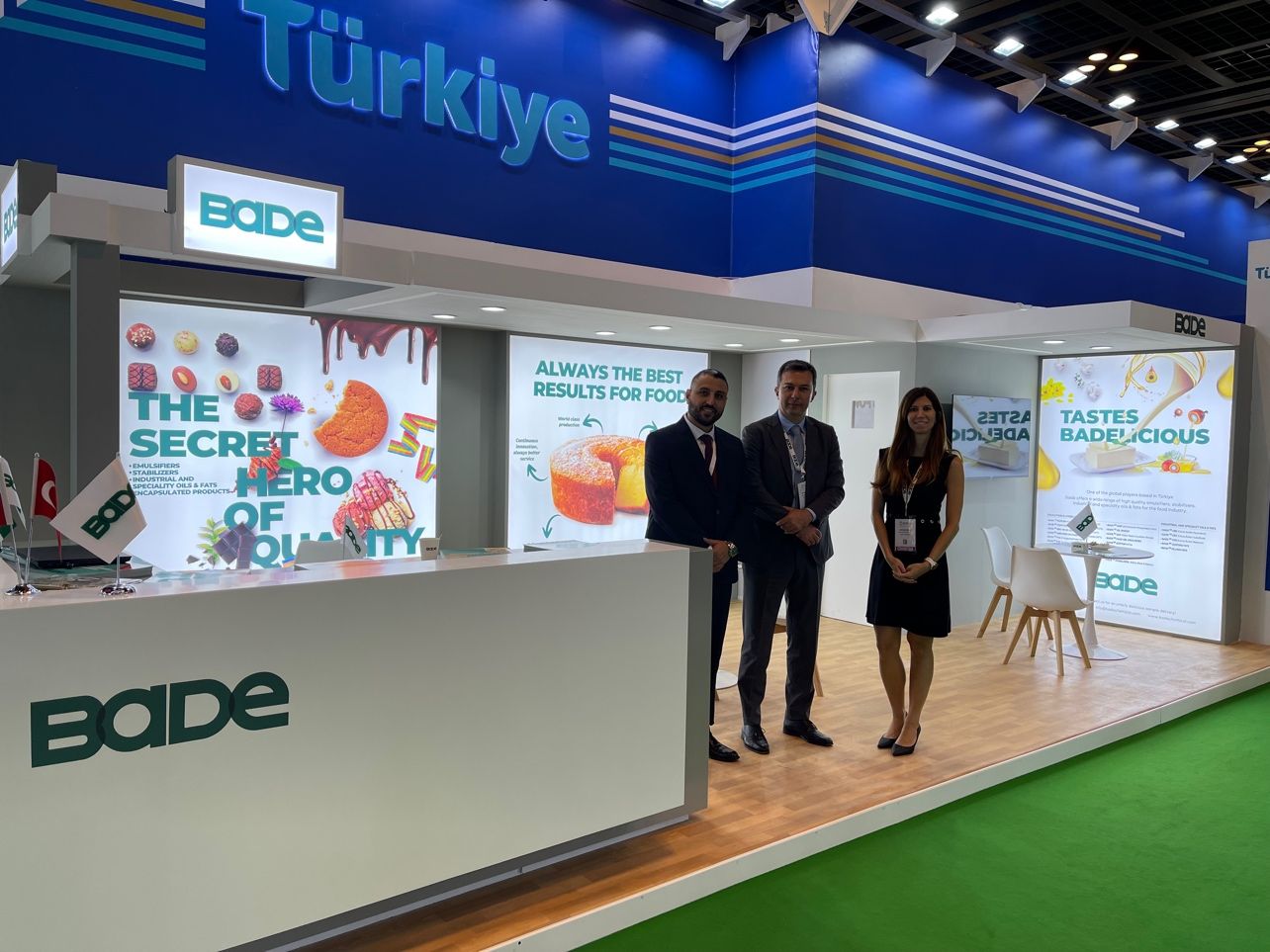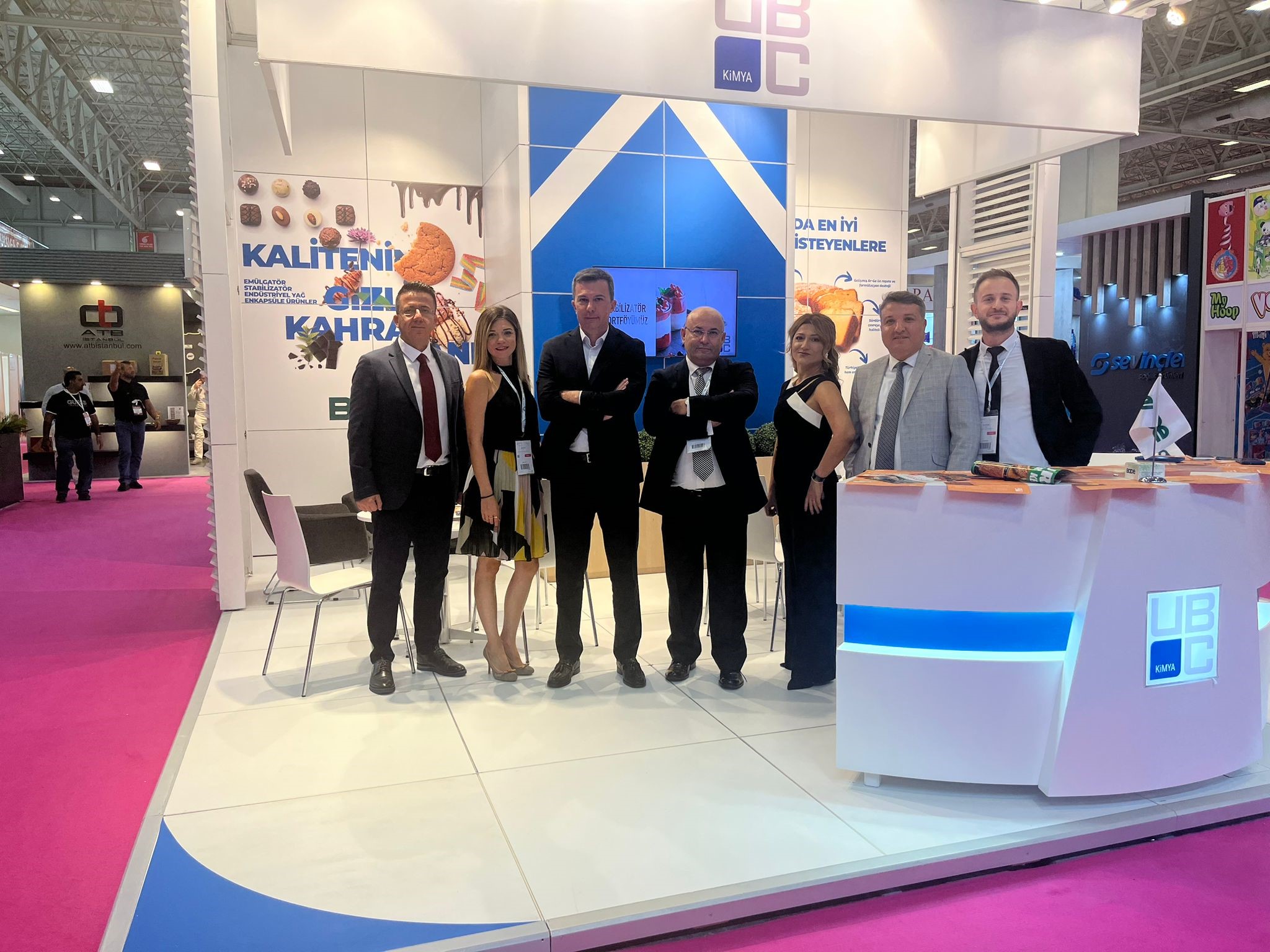
Remembering The Importance of Local Producers
Interview with GIDA 2000 Magazine
UBC Kimya, the representative and distributor of world-renowned companies in Turkey, also has a manufacturing identity. Some of the emulsifiers produced at its facilities in Izmir are exported. O. Burak Erenoğlu, Chairman of the Board of Directors of UBC Kimya A.Ş., answered our questions.
Mr. Erenoğlu, can you tell us about the founding story and areas of activity of UBC Kimya?
Our adventure started 12 years ago in Istanbul with the aim of representation and distribution. Today, our company's headquarters is located in Ataşehir.
In line with our goal, we currently represent and distribute globally renowned companies in Turkey. Some of these companies and the products we import include:
Eastman-USA: Organic acids (formic acid, propionic acid, butyric acid)
Jungbunzlauer-France: Lactic acid and its derivatives
Nedmag-Netherlands: Calcium chloride
Esterchem-United Kingdom: Acetic acid esters (Triacetin, EGDA, TEGDA, BGDA)
F.C PACHE-Uruguay: Cocoa powder
Naturstoff-Germany: Encapsulated acids (encap. citric acid, encap. malic acid, encap. sorbic acid, encap. GDL)
From the beginning of our establishment, we always aimed high, with production being a target that we had in mind and wanted to achieve. Therefore, we first established our stabilizer production facility with an annual capacity of 4,800 tons in Izmir under the brand Bade Kimya in 2015.
Later, in 2018, under the brand UBC Kimya, we established our second production facility in Izmir with a capacity of 3,800 tons, where we started the production of fatty acid esters (emulsifiers). This allowed us to export products that we had previously imported. In addition to our production facilities in Izmir, we continue to serve various sectors with our raw material supply from our affiliated warehouses in Istanbul and Izmir, which have a stock of over 1000 tons.
We are planning to put our factory with an annual production capacity of 12,000 tons of fatty acid esters into operation within 8000 m² of closed space next year, surpassing our goals and dreams.
We are making fast and confident steps towards our goal of becoming a significant chemical company in our country.
In which sectors is UBC Kimya active? Which products are included in your food portfolio?
Our raw material supply for the food, feed, leather, textile, cosmetics, mineral oil, plastic, and casting industries continues smoothly even in today's conditions.
We have a wide range of products, especially for the food sector. Among the main products we import are; maleic acid, propionic acid, butyric acid, lactic acid, sodium lactate, potassium lactate, calcium lactate, magnesium lactate, xanthan gum, calcium chloride, potassium chloride, triacetin, encapsulated acids, cocoa powder, cocoa liquor, sunflower and soy lecithin, sodium benzoate, potassium sorbate, ascorbic acid, guar gum, tara gum, locust bean gum (LBG), and more. In addition to this product range, we also serve the food sector with our emulsifiers such as PGPR, PGE, GMS (Monodiglyceride), STS, and SMS, which we produce for the meat and milk sectors
Can we get information about new products and R&D studies?
Fatty acid esters, or emulsifiers, are a world of their own. Even global companies that have been working in this sector for many years are forced to develop new products and convince customers with new products due to the intense competition in the market.
Our primary goal was to produce the main emulsifiers for the food sector and provide reliable product supply to local manufacturers at more favorable conditions. However, we are currently working on developing emulsifiers with different polyglycerol structures instead of standard products. In short, we are actively working to understand which structure is more successful and effective in which products.
Emulsifiers, while finding use in various sectors such as food, feed, leather, textiles, plastics, and casting, are increasingly preferred in processes in the new era and are being learned to be used. Recently, with the successful completion of production, we can simultaneously serve different sectors with three different types of polyglycerol polyricinoleate (PGPR) and 4 types of polyglycerol esters with different HLB values.
Can you explain the effects of the coronavirus pandemic on your company and the industry? What kind of studies have you done and are doing in this regard?
Unfortunately, the coronavirus affected us negatively, as it did in many areas. In addition to the difficulties we experienced in raw material supply, the measures we took within the framework of the coronavirus prevention plan caused disruptions and negative effects in our production.
Difficulties in production and transportation-related to raw materials made it difficult to find many products. We encountered price increases of up to 300% or even 400% in product prices.
The high cost of raw materials has also negatively affected the cost of finished products. We do not expect this situation to improve in the short term due to the emergence of new variants.
To minimize the impact of this situation, we have tried to navigate through it with the least damage, as we are experienced in our distributorships, by pre-contracting, and also by sourcing raw materials from alternative suppliers, as many companies do. We have contracts for our products until the end of 2021 and have already started making agreements for 2022. Hopefully, 2022 will not present itself as a more challenging year.
2020 was a challenging year for all sectors. How was it for you, and how do you view 2021?
Unlike many companies, our investments continued in 2020, which emerged as a year where R&D studies took precedence, driven by uncertainties and difficulties in raw material supply. It also highlighted the gap in local suppliers in the industry.
Suppliers abroad prioritize European markets. The main reason for this is that they can sell products at higher prices. They prefer to distribute the remaining products to other markets later. When suppliers have fewer products on hand, product supply becomes even more challenging for our market. Unfortunately, due to unexpected pandemic conditions, this situation has become even more difficult, emphasizing the importance of local producers.
The first eight months of 2021 were a bit more challenging than 2020. Although there has been some relief in product supply recently, the signals for the last quarter indicate that it will be challenging again. Hopefully, market conditions will become somewhat more stable after the first half of 2022.
Can you evaluate the situation of your industry in Turkey?
Looking at where the world stands, unfortunately, we can say that we are a bit behind in terms of production. For this reason, we are focusing on developing new types of emulsifiers to close the gap. The international competitors we compete with are world-renowned brands that have been producing emulsifiers for over a century, so they are well-known and respected organizations. We have brought the quality of our products, which are currently on the market, to a level that can compete with these brands.
Their biggest advantages are the recognition and trust that years have brought. Our highly motivated team, working enthusiastically to close the gap, has achieved significant successes in the suitability and sustainability of our products.
This situation has rapidly increased the reliability of our brand. I believe that in the coming period, we will further increase the level of competition with these brands.
Since the beginning of our R&D studies, we have received tremendous positive support from many companies in the industry with whom we have been working for many years. Thanks to the confidence they have given us, we have been able to pass through the production stages very quickly.
Many companies we still work with are opening their production for the first trials of the new products we have developed. I would like to thank them again at this point.
I believe that the tendency of local manufacturers to support each other is one of the fundamental factors in keeping the market strong, and we are pleased that many local manufacturers who have both local and international reach are supporting local production.
Is there anything else you would like to add?
As I mentioned, producing suitable products and the sustainability of this are directly proportional to quality management systems.
For this reason, from the installation stage, we planned our production, laboratory, and warehouse areas in accordance with BRC food quality standards. In this way, we raised our document, which was at the A level, to the A+ level.
To maintain our standard, we continue our work with care and diligence every day.
In our company, we also have ISO 9001 and ISO 14001 certificates.
Finally, I would like to mention that we have the Halal certificate valid in both Indonesia and Malaysia, which is followed and requested with attention and care domestically and internationally, as well as the Kosher certificates approved by the Orthodox Union.
https://www.gida2000.com/yerel-ureticilerin-onemini-bir-kez-daha-hatirladik.html



